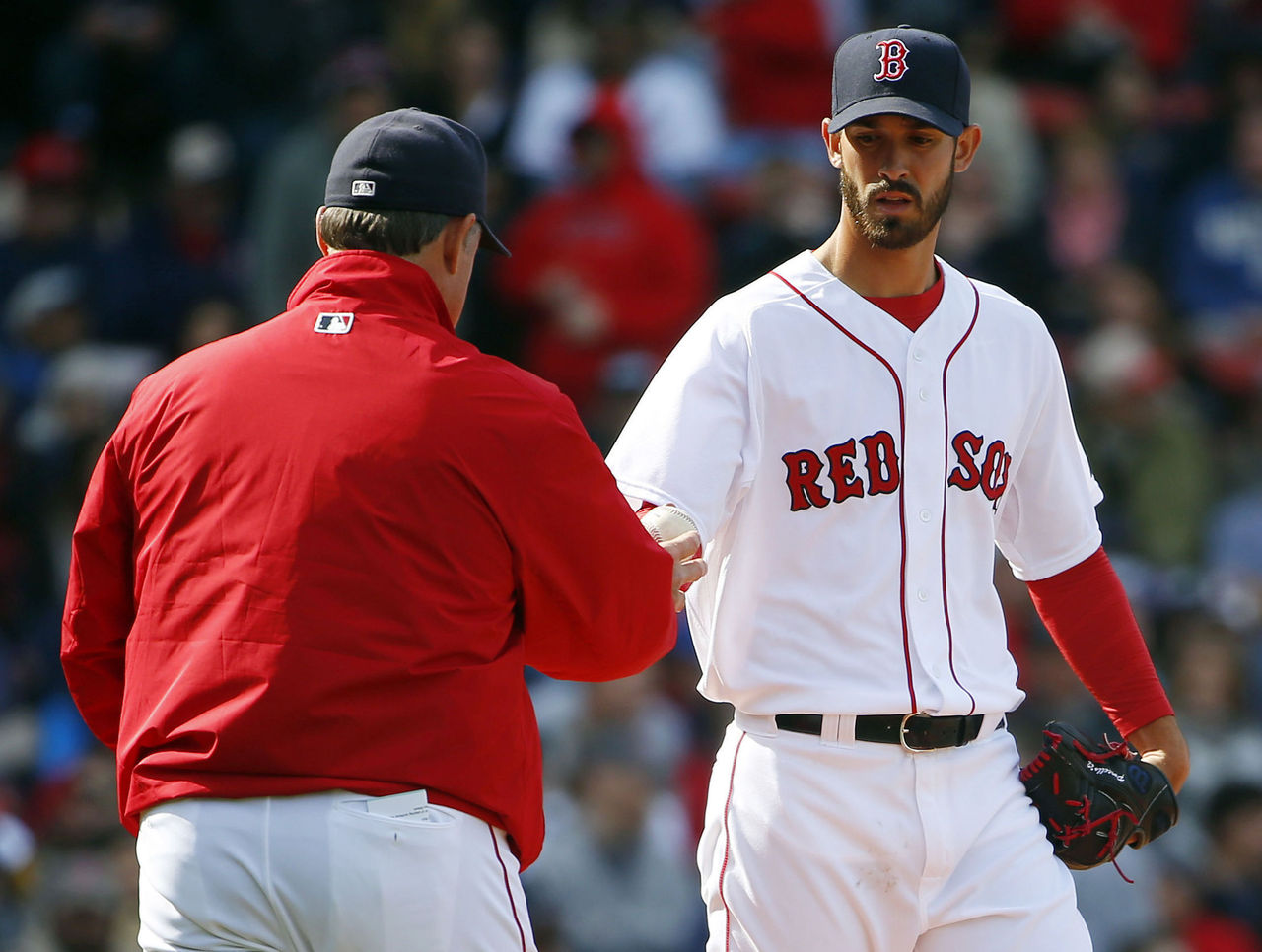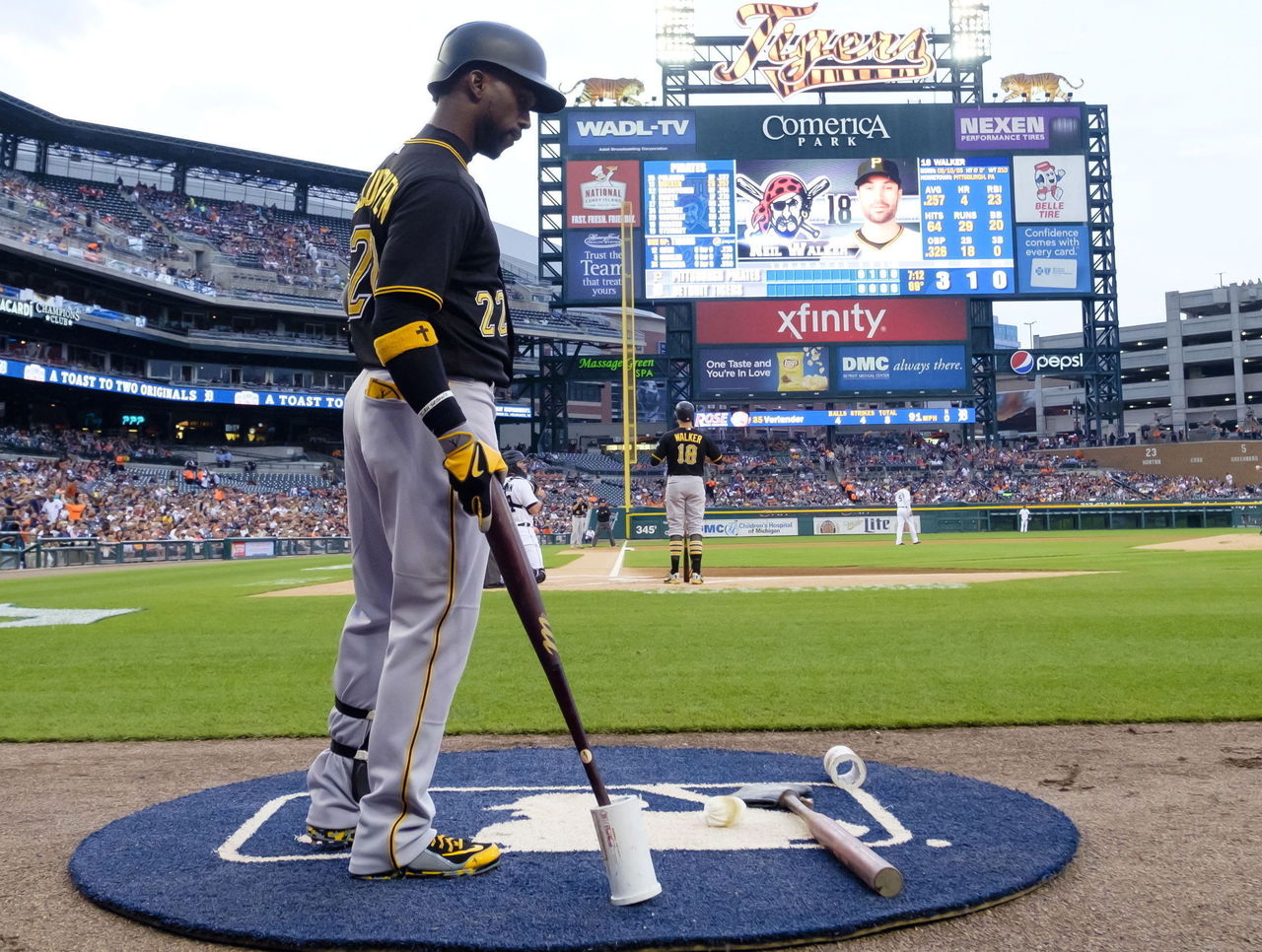How to approach notoriously slow starters in fantasy baseball
Follow theScore's fantasy feed on Twitter (@theScoreFantasy) for the latest news, features and more.
For whatever reason, certain players seem to spend the first month of the season in a sort of extended spring training. Despite almost always producing a year-end stat line that's in line with their career norms, much of April is spent working out the kinks.
Fantasy-wise, owning such a player can be frustrating, as consistent output is far more desirable than stop-and-start production. As a brief history lesson, here are a few of baseball's most notorious slow starters:
While he retired prior to last season, Adam LaRoche was perhaps the king of slow starts. Over 924 career at-bats in March and April, he held a .222 average, while hitting no worse than .254 in any other month.
Despite playing his home games in favorable California weather, Dodgers 3B Justin Turner's bat has a tendency to start out cold. He has a .250 average and a mere one home run in 236 lifetime at-bats in March and April. His career first- and second-half splits aren't all that different, though, so Turner's struggles tend to sort themselves out starting in May.
Pitchers aren't immune to slow starts, either. 2016 AL Cy Young winner Rick Porcello has a career first half ERA of 4.57, compared to a second half mark of 3.78. He ended last season with a 22-4 record and a 3.15 ERA despite a 3.66 first-half mark.

If you have such a player, wait out the slump
The 'notorious' adjective implies that the slow start has happened before, rather than being a surprise occurrence, so it shouldn't be a shock if Turner fails to immediately live up to his rich new contract extension when 2017 begins, for example. Past history suggests the player will turn it around in the coming months.
A slow start from a hitter is a lot less damaging than one from a pitcher, as one or two slumping bats can't torpedo an entire weekly fantasy lineup like an ill-timed pitching blowup can. Bonafide superstars aren't prone to regular slumps, but a fringe fantasy asset like Turner, ranked as the 15th third baseman in theScore's Top 200 rankings, can be looked at as little more than bench depth to open the season rather than an everyday fixture.
How are they slumping?
Analyzing a player's slow start can help fantasy owners diagnose whether the slump can be attributed to bad luck or is perhaps the sign of a decline.
BABIP (batting average on balls in play) is a metric that can quickly explain how lucky or unlucky a hitter is. A typical BABIP is .300, so those players with surprisingly high batting averages tend to be outperforming their BABIP. Conversely, a hitter in a slump is likely to have a below-average BABIP.
Regression to the mean in terms of BABIP should result in a player's batting average correcting itself before too long.
As well, if a player features in a hitter-friendly home ballpark, have they been playing an unusual number of road games to start the season? For a pitcher used to the comforts of a spacious home stadium, perhaps a visit or two to an opposing bandbox has resulted in an inflated ERA early on.
A pitcher's FIP (Fielding Independent Pitching) measures their "true" ERA, taking defense into account. A pitcher with an ERA significantly higher than their FIP implies that they've been victimized by some poor defense, and are performing better than their ERA would indicate.
FIP, BABIP and other metrics can be easily accessed on sites like Fangraphs and Baseball-Reference, and check out theScore's recent piece on predicting the future for both hitters and pitchers using batted ball stats.

Watch the waiver wire and the trade market
Have any frustrated owners cut bait with their slumping stars? If so, that represents a chance to bolster your lineup down the road with a name-brand player who is bound to come good for nothing more than a waiver claim.
Another possibility is attempting to buy low from a rival owner who may not be as aware that a particular player is prone to opening the season in a slump.
Last season, Pittsburgh's Andrew McCutchen hit .226 in April, but rebounded somewhat to post a .256 average and counting stats (24 home runs, 82 RBIs) in line with his career norms. While McCutchen still had the poorest full season of his career, fantasy owners who were able to buy extremely low on the five-time All-Star likely couldn't have been too disappointed with his production.